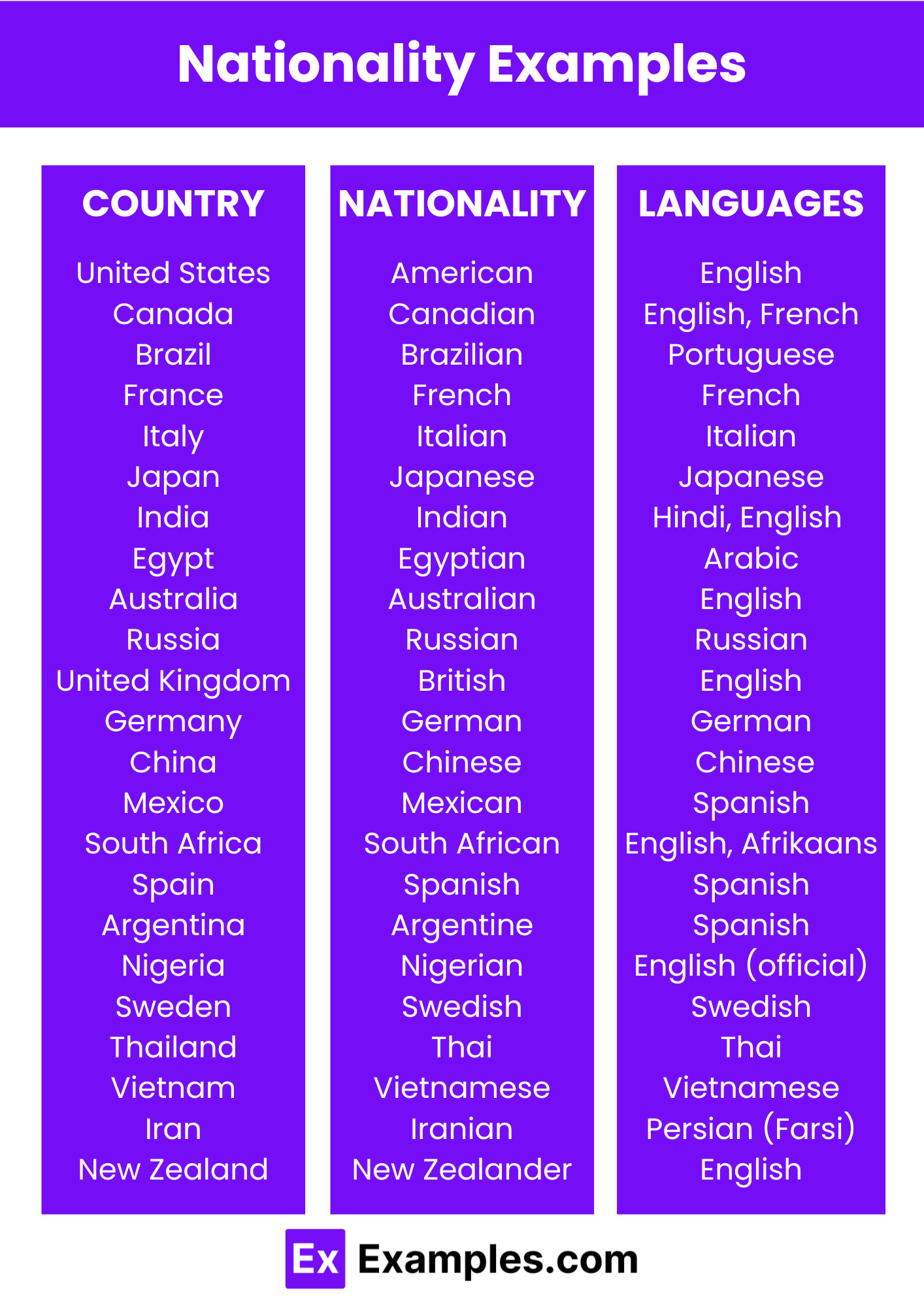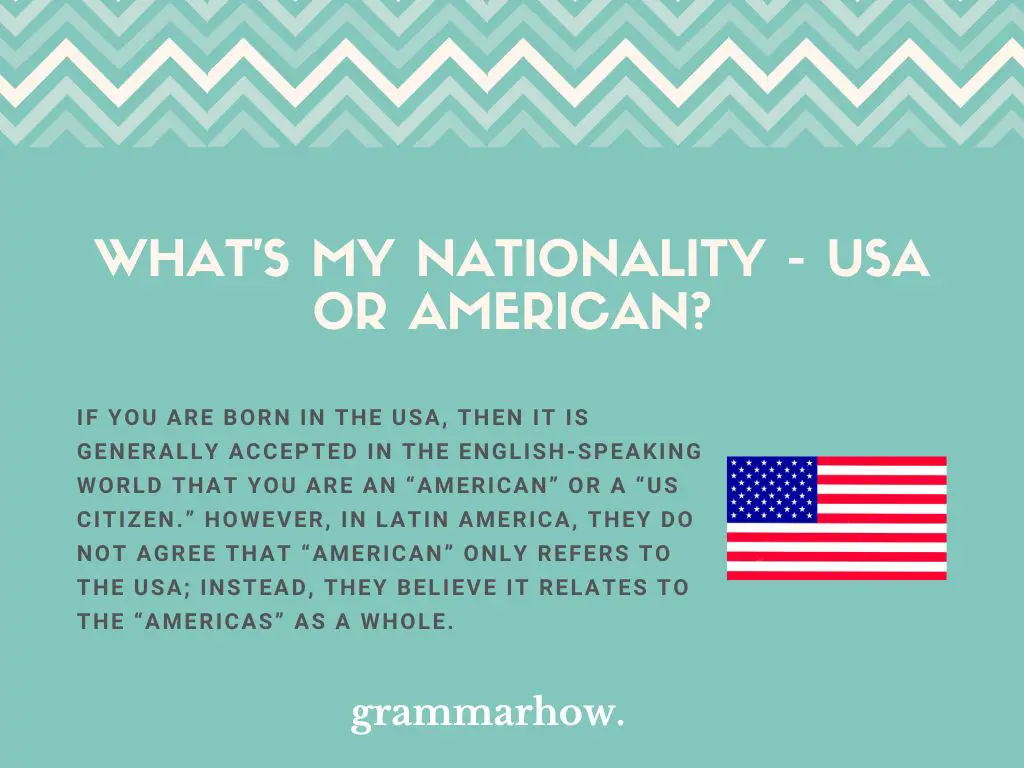Have you ever wondered about the nationality of a historical figure, celebrity, or ancestor? Understanding someone's nationality can provide deep insights into their cultural background, traditions, and heritage. This article delves into the concept of nationality, exploring its significance, historical context, and the factors that define it. By examining various perspectives, we aim to provide a comprehensive guide to help you uncover the nationality of individuals or groups.
As globalization continues to shape our world, understanding nationality has become more important than ever. It connects us to our roots while fostering appreciation for diversity. Whether you're researching a famous personality or tracing your family lineage, knowing what nationality someone belongs to can enrich your knowledge and broaden your cultural horizons.
In this article, we'll explore the intricacies of nationality, its historical evolution, and how it impacts modern society. We'll also provide practical tips and tools to help you determine the nationality of individuals or groups accurately. Let's embark on this journey of discovery together.
Read also:Samantha Schwartz Leak Unveiling The Truth Behind The Controversy
Understanding Nationality: Definition and Key Concepts
Nationality refers to the legal relationship between an individual and a country, often based on birth, descent, or naturalization. It represents a person's identity and belonging to a specific nation or state. While citizenship and nationality are often used interchangeably, they have distinct meanings. Citizenship typically involves legal rights and obligations, whereas nationality encompasses cultural, historical, and ethnic connections.
Several factors influence nationality, including:
- Place of birth
- Ancestral heritage
- Cultural identity
- Legal citizenship
Understanding these elements is crucial when determining someone's nationality, especially in cases where multiple factors may apply.
Historical Evolution of Nationality
The concept of nationality has evolved significantly over time. In ancient civilizations, identity was often tied to city-states or empires rather than modern nations. The rise of nation-states in Europe during the 17th and 18th centuries marked a turning point in the development of nationality as we know it today.
Key historical events that shaped nationality include:
- The Treaty of Westphalia (1648)
- The French Revolution (1789)
- World War I and II
- Decolonization movements in the 20th century
These events contributed to the establishment of national borders, identities, and legal frameworks that define nationality in contemporary society.
Read also:Amanda Labollita Unveiling The Truth Behind The Controversial Figure
Factors Influencing Nationality Determination
Place of Birth
One of the primary factors in determining nationality is the place of birth. Jus soli, or the "right of the soil," grants nationality based on where a person is born. This principle is widely practiced in countries like the United States, Canada, and Brazil.
Ancestral Heritage
Jus sanguinis, or the "right of blood," determines nationality based on parental descent. Many countries, including Germany, Japan, and Italy, prioritize this method. If one or both parents are citizens of a particular nation, their children may automatically acquire that nationality.
Cultural Identity
Cultural identity plays a significant role in shaping nationality. Shared language, traditions, and values often define a person's sense of belonging to a specific group or nation. For example, someone with mixed ancestry may identify more strongly with the cultural heritage of one parent over the other.
Legal Aspects of Nationality
The legal framework surrounding nationality varies across countries. International laws, such as the United Nations Convention on the Reduction of Statelessness, aim to address issues related to nationality and citizenship. However, discrepancies in national laws can lead to complications, particularly in cases involving dual or multiple nationalities.
Key legal considerations include:
- Naturalization processes
- Dual nationality policies
- Statelessness and its implications
Understanding these legal aspects is essential for anyone navigating the complexities of nationality determination.
Cultural Impact of Nationality
Nationality influences various aspects of cultural expression, including language, art, cuisine, and traditions. It shapes how individuals perceive themselves and interact with others within their communities. For example, someone with Italian nationality may take pride in their country's rich history of art and cuisine, while a Japanese national might celebrate traditional festivals and customs.
Tools and Resources for Determining Nationality
Several tools and resources can assist in determining someone's nationality:
- Genealogical records
- Historical documents
- Government databases
- Online research platforms
These resources provide valuable information for tracing ancestry, verifying legal documents, and understanding cultural contexts. For instance, websites like Ancestry.com and FamilySearch.org offer extensive databases for genealogical research.
Case Studies: Famous Figures and Their Nationalities
Biography of Albert Einstein
Albert Einstein, one of the most renowned physicists in history, had a complex nationality background. Below is a summary of his personal data:
| Full Name | Albert Einstein |
|---|---|
| Date of Birth | March 14, 1879 |
| Place of Birth | Ulm, Germany |
| Nationality | German (initially), Swiss, and American |
| Fields of Expertise | Physics, Mathematics |
Einstein's nationality changed multiple times throughout his life. He renounced his German citizenship in 1896, became a Swiss citizen in 1901, and later acquired American citizenship in 1940.
Biography of Frida Kahlo
Frida Kahlo, the iconic Mexican painter, is celebrated for her vibrant art and cultural contributions. Below is her personal data:
| Full Name | Magdalena Carmen Frida Kahlo y Calderón |
|---|---|
| Date of Birth | July 6, 1907 |
| Place of Birth | Coyoacán, Mexico City, Mexico |
| Nationality | Mexican |
| Fields of Expertise | Painting, Art |
Kahlo's Mexican nationality deeply influenced her art, which often depicted themes of identity, culture, and tradition.
Challenges in Determining Nationality
Several challenges arise when determining nationality, particularly in cases involving:
- Statelessness
- Dual or multiple citizenships
- Historical border changes
For example, individuals born in regions with shifting borders, such as Eastern Europe or the Middle East, may face difficulties in establishing their nationality. Similarly, stateless persons often struggle to obtain legal recognition and access basic rights.
Modern Implications of Nationality
In today's globalized world, nationality continues to play a vital role in shaping identity and belonging. However, it also raises important questions about inclusivity, diversity, and human rights. As societies become increasingly interconnected, the concept of nationality must evolve to accommodate these changes while preserving cultural heritage.
Conclusion and Call to Action
This article has explored the multifaceted nature of nationality, its historical evolution, and its impact on modern society. By understanding the factors that influence nationality determination, we can appreciate the richness of cultural diversity and the complexities of identity.
We encourage you to share your thoughts and experiences in the comments section below. Have you encountered challenges in determining your own nationality or that of someone else? How has nationality shaped your sense of identity? Additionally, feel free to explore other articles on our website for further insights into related topics.
Table of Contents
- Understanding Nationality: Definition and Key Concepts
- Historical Evolution of Nationality
- Factors Influencing Nationality Determination
- Legal Aspects of Nationality
- Cultural Impact of Nationality
- Tools and Resources for Determining Nationality
- Case Studies: Famous Figures and Their Nationalities
- Challenges in Determining Nationality
- Modern Implications of Nationality
- Conclusion and Call to Action


